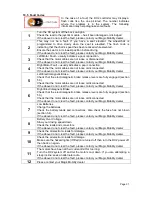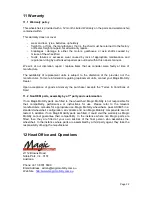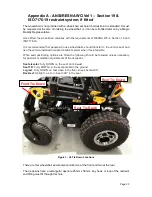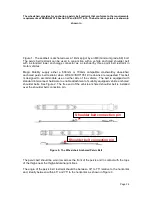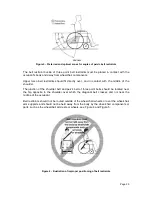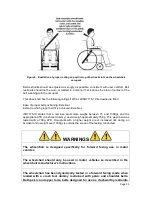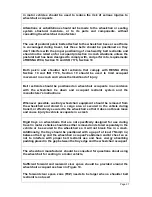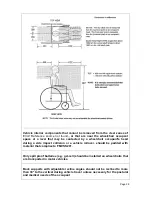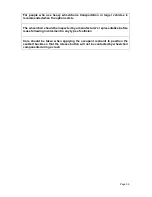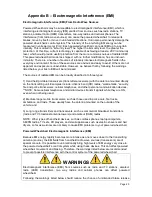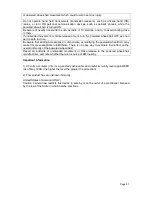
Page 26
8.5
Cleaning
Your power chair has a powder coated metal frame that allows it to be easily wiped clean
with a damp cloth. Never hose off or pressure clean your power chair or place it in direct
contact with water.
8.6
Corrosion Protection
The V6 power chair has been manufactured using a range of processes that have been
developed to resist corrosion. Although all effort has been made to ensure the long-term
durability of the product we cannot guarantee that the wheelchair will remain corrosion-free
for the duration of its usable life. Prevention, protection and maintenance are essential to
reducing the risk of corrosion on the wheelchair.
The most common causes of corrosion to the power chair are:
-
Chipping or scratching of paint or undercoat caused by impact with rocks or other
hard objects.
-
The accumulation of grit salt, dirt and moisture on the chassis components.
-
Exposure to highly corrosive environments such as the beach and coastal areas,
rivers and creeks.
8.6.1 Paint scratches and chips
If your power chair chassis or any other steel components are scratched or chipped leaving
the bare metal exposed it is recommended to undertake the following steps to repair the
paintwork:
-
Lightly sand the exposed area to flatten it and remove any loose edges of paint and
any chipping that has occurred. Ensure any surface corrosion has been removed in
this process.
-
Apply a cleaning solvent to the area to remove any dust, impurities and oils.
-
Apply primer over the area to be touched up.
-
After allowing adequate drying time, apply the touch-up paint ensuring that it covers
all exposed areas. When dry, the area should now be protected from further
corrosion.
If is it not practical to perform the above steps, products that neutralise rust and prevent it
from spreading can be used such as the many commercially available ‘rust converter’
products.
8.6.2 Beach, salt water and Coastal Areas
Salt water and the surrounding environment is highly corrosive.
Exposure to coastal areas will also increase the likelihood of corrosion occurring on the
power chair even if it is not used on the beach. Coastal air generally has a far higher salt
content than inland areas. The highest coastal corrosion rates are generally within
approximately 500 metres (1640 ft) of the shoreline. If you live in a coastal area or regular
use the wheelchair near the beach please see section 8.6.4
below for maintenance advice.
8.6.3 Snow and Ice, Salted Roads and Footpaths
Avoid using the wheelchair on salted surfaces where possible as the salt can have a
detrimental effect on many of the components used in the wheelchair. If the wheelchair has
been driven on wet, icy or salted surfaces please see section 8.6.4 below for maintenance
advice.




















